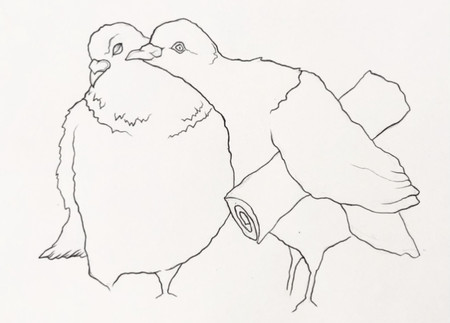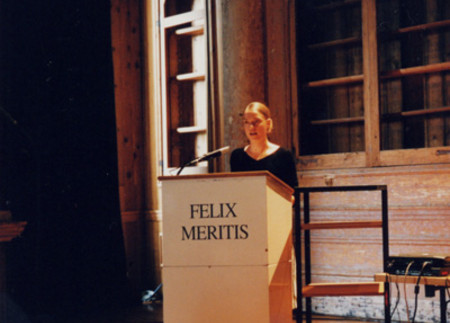Haraway uses the metaphor of the cyborg to discuss the relationships of science, technology, and 'socialist-feminism'.
She holds that hi-tech culture challenges and breaks down the old dualisms of Western thinking like the mind/body split, Self/Other, male/female, reality/appearance, and truth/illusion. She holds that we are no longer able to think of ourselves in these terms, or even strictly speaking, as biological entities. Instead, we have become cyborgs, mixtures of human and machine, where the biological side and the mechanical/electrical side become so inextricably entwined that they can't be split.
Focused on the metaphors which science uses and how those metaphors subtly determine the networks of power which control our world, her work ranges from primatology to epistemology, from cancer research to information technology. Haraway has identified a social and cultural movement from an organic, industrial society to a polymorphous information system, which she has charted as a series of transformations that restructure webs of power created by the politics of science and technology.
Donna Haraway's influence is felt widely in cultural studies, women's studies, political theory, primatology, literature, and philosophy. Haraway's prolific publications are required reading across the humanities and social sciences.
In Primate Visions: Race and Nature in the World of Modern Science (1990) she combines literary theory, political philosophy, primatology, and American history to explore the world of primatology, which has become a largely woman-dominated field.
Two other widely cited and highly influential articles include A Manifesto for Cyborgs (1985) intially published in Socialist Review, and Situated Knowledge, first published in Feminist Studies. These two essays revolutionized feminist theory, and set a tone of playfulness and experimentation that has become a Haraway trademark, as demonstrated in her book, Modest Witness @ Second Millenium (1996). This book continues her impious metaphors for a kind of thinking that blurs borders and renders categories permeable: from cyborgs, she moves to vampires and monsters, taking each as an opportunity to put unfamiliar metaphors to productive use.



